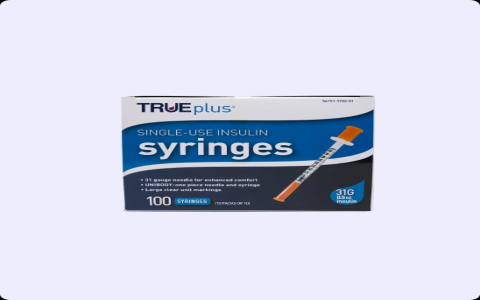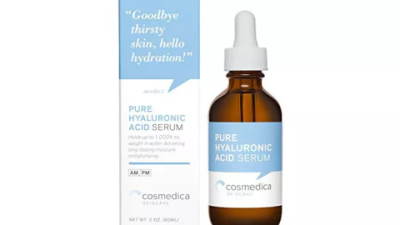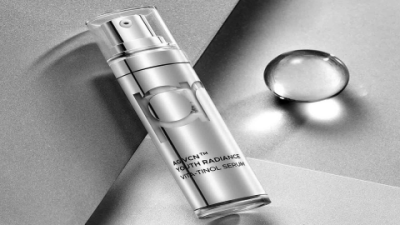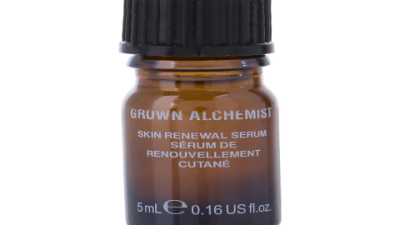Let's Settle This Skincare Debate Once and For All
Okay, so you're standing in the skincare aisle (or scrolling through Sephora online) trying to figure out whether to grab that retinol serum everyone's raving about or stick with trusty hyaluronic acid. I get it - the skincare world can feel overwhelming with all these ingredients that sound like they belong in a chemistry textbook.
Here's the thing though: both of these ingredients are absolute game-changers, but they work in completely different ways. Think of it like comparing a marathon runner to a sprinter - they're both athletes, but you wouldn't expect them to excel at the same things.
The Anti-Aging Face-Off
When it comes to turning back the clock, retinol is basically the overachiever of the skincare world. This stuff gets down to business by telling your skin cells to speed up their renewal process. You know those fine lines that seem to appear overnight? Retinol actually helps your skin produce more collagen, which is like giving your face a natural plumping treatment from the inside out.
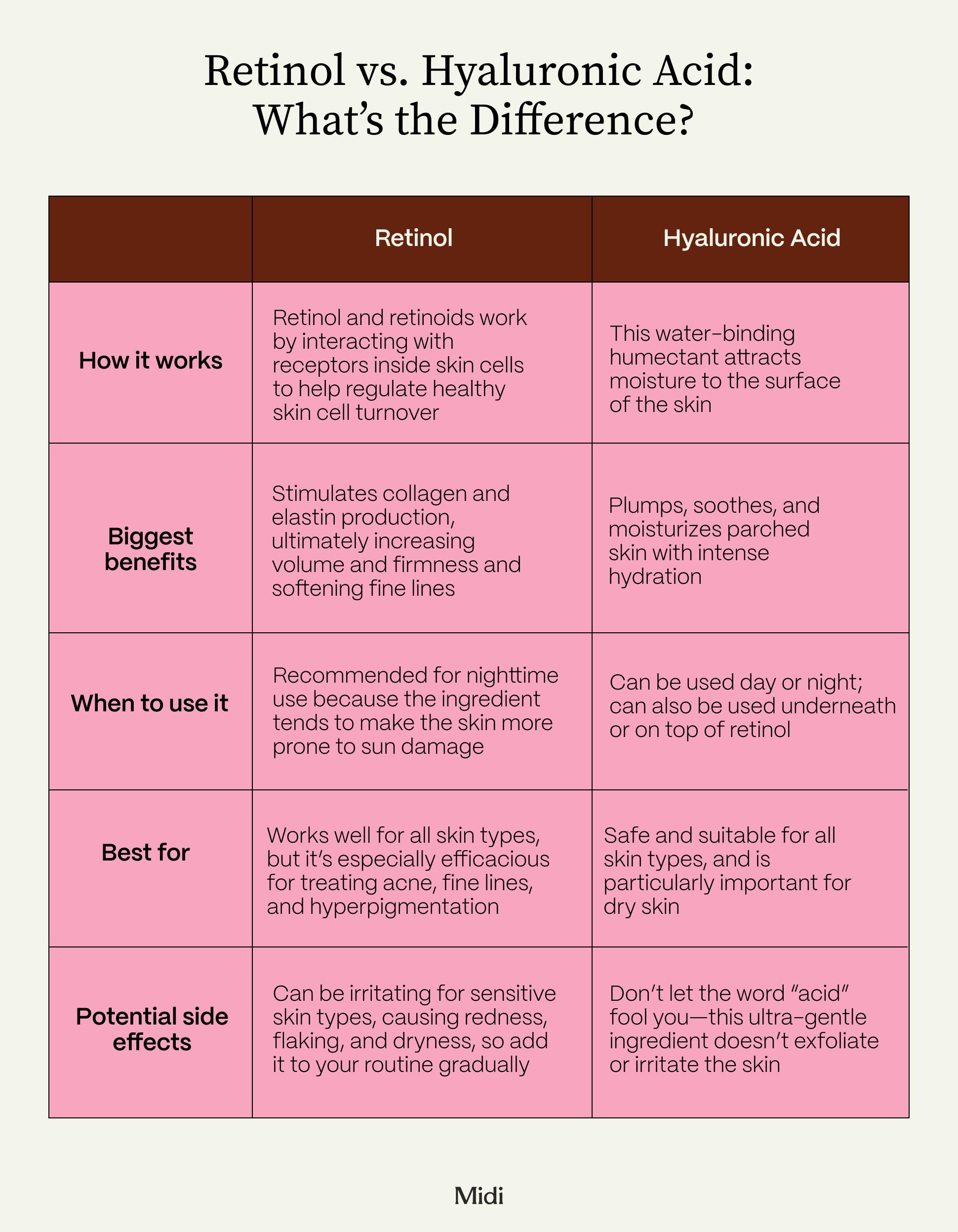
I've seen people get genuinely excited about their skin after using retinol for about six weeks. The changes aren't instant, but when they happen, they're pretty impressive. We're talking about smoother texture, fewer visible lines, and that overall "my skin looks better but I can't quite put my finger on why" effect.
Hyaluronic acid takes a different approach. Instead of renovating your skin from the ground up, it's more like giving your face a really good drink of water. It can hold up to a thousand times its weight in water, which sounds crazy but actually works. Your skin looks plumper and smoother almost immediately, though the effect is more temporary.
Dealing with Breakouts and Problem Skin
If acne is your main concern, retinol is going to be your best friend. It doesn't just sit on the surface - it actually gets into your pores and helps prevent them from getting clogged in the first place. Plus, it helps fade those annoying dark spots that stick around long after the actual pimple is gone.
The catch? Retinol can be a bit of a tough-love friend at first. Some people experience what's called "purging," where your skin might actually break out more initially as it adjusts to the ingredient. It's not permanent, but it can be frustrating if you're not expecting it.
Hyaluronic acid won't directly fight your acne, but it's great for keeping your skin balanced while you're using other acne treatments. Think of it as the supportive friend who brings you soup when you're sick - not solving the problem directly, but making everything more bearable.
The Hydration Game
This is where hyaluronic acid absolutely shines. If your skin feels tight, looks dull, or your makeup just won't sit right, dehydration might be the culprit. Hyaluronic acid is like that friend who always remembers to bring water bottles on a hike - it just makes everything better.
The beauty of hyaluronic acid is that it works for literally everyone. Oily skin? It hydrates without making you greasy. Dry skin? It's like a tall glass of water for your face. Sensitive skin? It's gentle enough that it won't cause irritation.
Retinol, on the other hand, can actually make your skin feel drier initially. It's doing important work behind the scenes, but the process can leave your skin feeling a bit parched. That's why many people use both - the retinol for long-term improvements and the hyaluronic acid to keep things comfortable day-to-day.
Sensitive Skin Considerations
Let's be real about this: if your skin freaks out when you try new products, hyaluronic acid is probably your safest bet. It's like the golden retriever of skincare ingredients - friendly, reliable, and unlikely to cause drama.
Retinol requires more of a commitment and some patience. You typically need to start slowly, maybe using it just twice a week at first, and gradually work your way up. Some people experience redness, peeling, or irritation during the adjustment period. It's not necessarily a bad thing, but it's definitely something to be aware of.
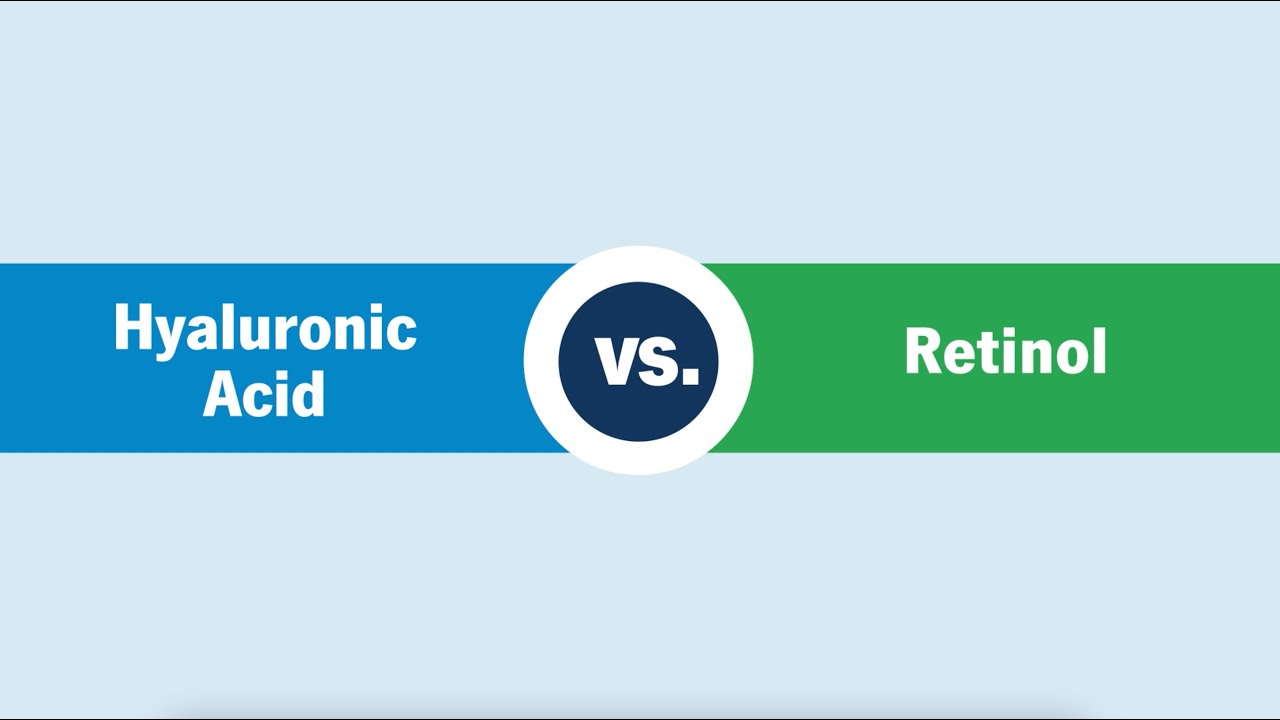
Pregnant or nursing? Hyaluronic acid gets the green light from doctors, while retinol is generally off-limits during this time.
Quick Results vs Long-Term Changes
Here's where these two ingredients show their true personalities. Hyaluronic acid is instant gratification in a bottle. You can literally see your skin looking plumper and more hydrated within minutes of applying it. It's perfect for those days when you need your skin to look good right now.
Retinol is more of an investment in your future self. You might not see dramatic changes for the first month or two, but stick with it, and you'll likely notice improvements in your skin's overall texture, tone, and firmness. It's the skincare equivalent of going to the gym - the results take time, but they're worth the wait.
What Works for Different Skin Types
If you're in your twenties and mainly dealing with occasional breakouts or just want to prevent future aging, hyaluronic acid might be all you need right now. It keeps your skin healthy and hydrated without any of the potential side effects that come with stronger ingredients.
For those dealing with more established signs of aging, acne scarring, or uneven skin texture, retinol is probably worth the adjustment period. Just remember that good things take time, and be patient with the process.
People with combination skin often find that using both works well - hyaluronic acid all over for hydration, and retinol on specific areas where they need more targeted treatment.
The Cost Factor
Both ingredients come in a huge range of prices, from drugstore finds to luxury splurges. The good news is that you don't necessarily need to spend a fortune to get results with either one.
Hyaluronic acid tends to be pretty straightforward - as long as the product contains a good concentration of the ingredient and doesn't have a bunch of irritating additives, you're probably good to go. You can find effective options at pretty much any price point.
With retinol, the concentration and formulation matter more. Higher concentrations aren't always better (especially if you're just starting out), but the way the retinol is stabilized and delivered can make a difference in how well it works and how your skin tolerates it.
So Which One Actually Wins?
After looking at all the factors, hyaluronic acid edges out as the winner for most people, but hear me out on this.
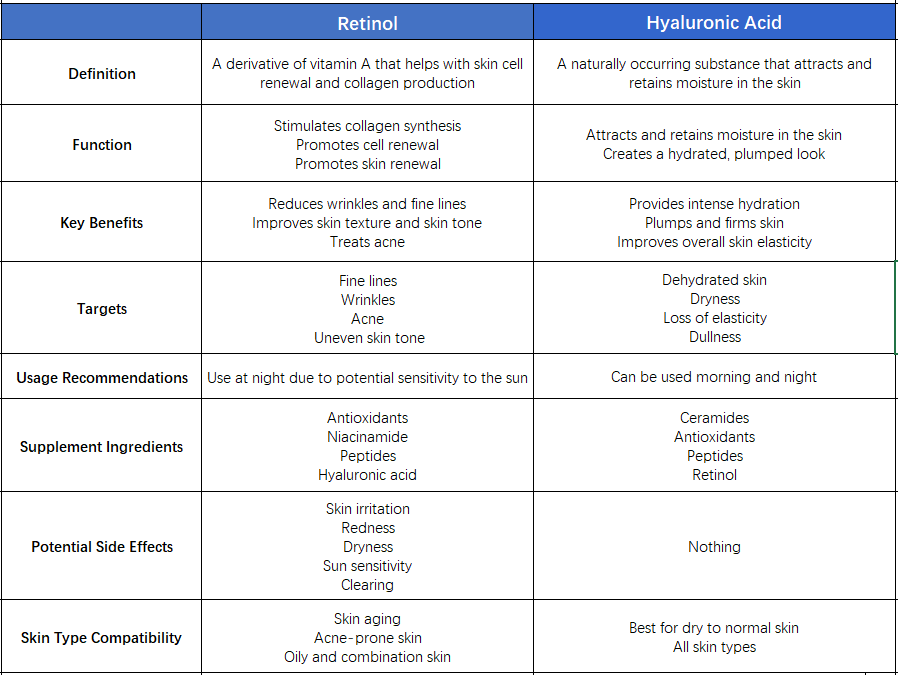
Hyaluronic acid wins because it's universally beneficial, immediately effective, and plays well with literally every other skincare ingredient. It's like the perfect supporting actor - it makes everything else in your routine work better while delivering its own benefits.
But here's the plot twist: you probably don't have to choose. These two ingredients actually work beautifully together. Use hyaluronic acid as your daily hydration hero, and add retinol a few times a week for those long-term skin improvements.
If you're only going to pick one though, hyaluronic acid is the safer bet. It gives you immediate results, works for all skin types, and you can use it every single day without any concerns. Retinol is amazing, but it's more of a specialized tool for specific skin goals.
Making It Work in Real Life
Start with hyaluronic acid if you're new to skincare or have sensitive skin. Use it morning and night after cleansing but before your moisturizer. Your skin should feel more hydrated and look plumper pretty much immediately.
Once your skin is happy with hyaluronic acid, you can think about adding retinol if you have specific concerns like acne, dark spots, or visible aging. Start with the lowest concentration you can find, use it just twice a week initially, and always follow up with a good moisturizer.
The most important thing is to listen to your skin. Some people can use retinol every night without issues, while others need to stick to twice a week indefinitely. There's no universal right answer - just what works best for your individual skin.
And remember, consistency beats perfection. It's better to use a gentle routine regularly than to go all-out with products that irritate your skin and end up sitting unused in your bathroom cabinet.
